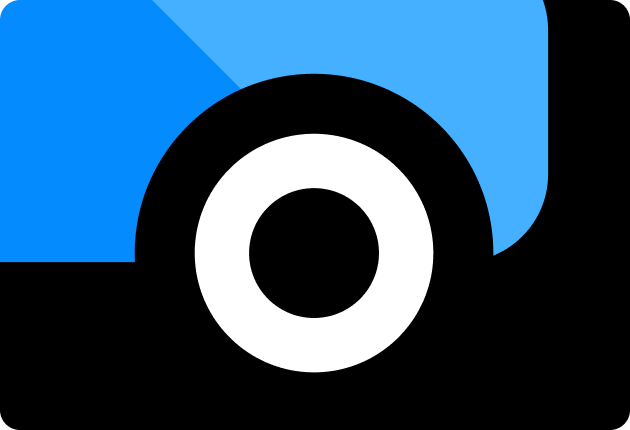
Last Updated on 2023-07-19
How To Make Sure You Get Health Insurance With DoorDash
We worked with these active, experienced gig-workers to write this article and bring you first-hand knowledge.

Experienced writer/researcher in the gig industry working alongside our gig-workers

6 years of experience working across DoorDash, Instacart, and Spark
This post is for informational purposes only and does not offer advice on what, if any, health insurance policy you should buy. Please refer to your state’s laws or seek legal advice about any local health insurance requirements that may apply to you.
DoorDashers work as independent contractors, which means they don’t qualify for traditional employee benefits, including health insurance. That means that you’ll need to find and sign up for your own health insurance plan if you want to stay covered while driving for DoorDash.
To help make things easier for Dashers, DoorDash has partnered with Stride, an official enrollment partner of HealthCare.gov. But whether the Stride partnership actually offers any significant advantages over individual state marketplaces is largely up to personal taste.
Here, we’ll cover your different health insurance options as a DoorDasher so that you can make the best choice for your unique circumstances and preferences.
Does DoorDash offer health insurance?
No, DoorDash does not offer health insurance to its Dashers. If you work for DoorDash as a corporate employee, that’s an entirely different story — we won’t be covering that here.
When you work for DoorDash as a Dasher, you’re working for yourself with DoorDash as your customer/client. You’re essentially running your own order fulfillment business.
As a self-employed person, you’re responsible for getting your own health insurance, and you won’t receive any employee benefits from DoorDash.
Michael Vaness, a Dasher with over a year of experience, rightly points out that you should factor in health insurance costs when deciding whether to work a full time job or just do DoorDash for your income: “You want to make sure you are making enough money through DoorDash to uphold your insurance coverage. If your insurance coverage costs the same or more than what you are making with DoorDash, you would be working simply to cover insurance costs and the job wouldn't be worth it.”
That said, DoorDash has partnered with Stride in an attempt to make finding a health insurance plan easier for its Dashers. But overall, it doesn’t end up being a huge improvement over using your state’s healthcare marketplace, like any other freelancer, self-employed person, or business owner would (Stride is available to them as well).
What about DoorDash vision Insurance or DoorDash dental insurance?
Same deal: you can get those through Stride or your state’s health insurance marketplace.
But there’s one other option: you can purchase dental and vision insurance directly from insurance providers, without needing to go through a marketplace.
What the Stride-DoorDash partnership means for you
First things first: Stride is not a health insurance provider, and it doesn’t offer any health insurance policies of its own.
Stride is essentially an insurance broker that offers a health insurance marketplace. That means that you can use Stride to buy health insurance policies from well-known insurance companies, like Blue Cross Blue Shield, Cigna, United Healthcare, and more. But there’s no such thing as a “Stride Health Insurance policy.”
The important question is: what’s the difference between getting health insurance through Stride versus through your state’s health insurance marketplace?
Fundamentally, both options are the same. Stride is an official HealthCare.gov enrollment partner, and it claims to offer all the same health care policies you would find on your state’s marketplace at the same cost with no markups and no hidden fees.
The difference lies in the user experience: Stride advertises that it makes buying health insurance quick and easy, allowing you to enroll in an insurance plan “in 10 minutes or less.” It also offers guidance from its “award-winning advisors” to help you find and make the most of your health insurance plan.
However, depending on what state you live in, these offerings aren’t all too different from what you can find on your state’s online marketplace — you can usually call up for advice and enroll quickly online on those too.
Stride can also get you exclusive deals on prescriptions, gas, car repairs, eyewear, and more, which is a welcome perk.
As a DoorDasher, the biggest benefit for you will likely be the integration with Stride’s tax tools. In addition to health insurance, Stride also offers tax filing and mileage tracking tools. When you put all three of these services together, you get a complete package that tracks your deductions from health care, mileage, and other business expenses and puts them all together for you in a ready-to-file IRS report.
Noah Jorstad, who has three years of experience driving for DoorDash, particularly likes the convenience of the Stride app. “I used Stride mainly for tracking mileage but also for recording tax deductions for all my equipment. They send you a neat little paper with all your info to give to your tax preparer. It’s really nice.”
Is Stride/DoorDash health insurance good?
Since Stride is only a healthcare broker, the quality will depend entirely on the plan that you choose and whether you add vision and/or dental insurance.
However, when it comes to Stride as a service, opinion among Dashers is pretty neutral. Whether Stride or your state’s individual marketplace is better for you will largely depend on the services your state offers. Some states have great interfaces and advisement services for their marketplaces, while others are a bit clunky. Check out your state’s marketplace and see how you feel — some Dashers simply prefer the Stride interface to their state’s marketplace.
At the end of the day, no matter which option you choose, you can rest assured that Stride is safe. The government takes healthcare very seriously, so while Stride is an official HealthCare.gov enrollment partner, you can be confident that it meets all relevant regulatory requirements.
How much does Stride health insurance cost?
Again, this depends on the plan you choose.
Depending on your income, you may also qualify for federal subsidies that will cover some of the cost of your plan. Subsidies are available to those earning 100-400% of the Federal Poverty Level (FPL), which currently works out to incomes between $14,580 and $58,320.
Keep in mind that Medicaid is not available through Stride. If your income is below 100% of the FPL, you may qualify for complete healthcare coverage under Medicaid. Stride advises people earning less than $14,580 to apply for Medicaid through their state marketplace, and not to use Stride.
One of Stride’s flagship services is their health insurance guidance, so they can help you figure out how much you can expect to pay. You may also be able to call up your state’s health care marketplace to get the same information.
For a rough estimate, you can take a look at state health insurance premium averages here — just keep in mind these numbers don’t take into account subsidies or Medicaid, so they’ll only be relevant to you if you earn more than 400% of the FPL ($58,320).
To get an idea of your cost with subsidies included, you can use the Obamacare subsidy calculator here.
I live in California — what do I need to know about the DoorDash healthcare stipend?
On December 16, 2020, California’s Prop 22 went into effect. Since then, if:
- You’ve dashed an average of 15 or more active hours per week for the quarter
AND
- You’re enrolled in a qualifying healthcare plan
then you’re entitled to receive a stipend towards your health insurance costs from DoorDash.
Active time is defined as the time between when you accept a delivery and when you complete it. DoorDash tracks this automatically, and will send you an email inviting you to apply for the stipend if you meet the criteria. If you do not receive an email but believe you’re entitled to the stipend, you should reach out proactively to them.
Here’s how much pay you’ll receive if you’ve averaged:
- Between 15 and 25 active hours per week: $683
- 25 or more active hours per week: $1,366
That’s it — the DoorDash Prop 22 calculation is as easy as that.
Alternatives to the Stride-DoorDash partnership
If you’re not interested in getting your health insurance through Stride, here are some alternatives:
- Go through your state’s marketplace: Every state has one, just search “[your state] health insurance marketplace” to find yours. From there, you can enroll in health insurance plans, apply for subsidies, and apply for Medicaid.
- Subsidized Health Insurance Plans: If you earn between 100-400% of the Federal Poverty Line (so between $14,580-$58,320), you may be eligible for federal subsidies. You can get these through Stride as well.
- Medicaid: If you’re earning less than 100% of the Federal Poverty Level (so less than $14,580), you’re likely eligible for Medicaid. Stride does not offer Medicaid. You must apply through your state’s healthcare marketplace.
- Get on your spouse’s or domestic partner’s health insurance: If your spouse or partner has health insurance through their employer, you may be able to get on their plan. You do not need to be married to do this — it depends on their employer’s policies. In some cases, you only need to certify that you are both domestic partners. That means that this option is also available to unmarried, cohabitating partners in some cases.
- Buy direct (dental and vision insurance only): For dental and vision insurance, you can buy direct from insurance providers.
- Stay on your parent/guardian’s health insurance: If you’re currently covered under a parent or guardian’s health insurance plan, you can stay on their health insurance while working for DoorDash until you turn 26 (or 29 in some cases).
Noah points out that even your spouse’s part-time job may have these kinds of benefits: “In our area, you can get a part time job at UPS that offers free, excellent benefits. My wife had to get over $3000 in dental work done and we only paid $85 ourselves.”
Ready to get started with DoorDash?
Sign up to be a Dasher now to kick off the application process - you can keep exploring your health insurance options in the meantime.


